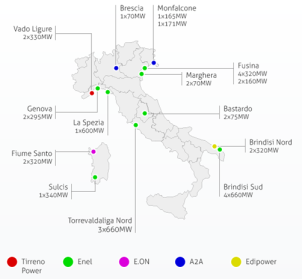
By Camila Rolando Mazzuca.
Today’s world energy production mainly derives from non-renewable sources and represents up to 47% of the world’s greenhouse gas emissions for the 2000s decade. These emissions reinforce the inequalities between low income populations, whose environment and health are usually the most affected by it, and the profits made by fossil-fuel corporations. While threatening the climate and feeding multiple risks, the energy production from fossil fuels remains supported through unquestioned public subsidies.
Salvatore Altiero and Marica Di Pierri from A Sud give a concise summary of the latest Italian energy legislation, bringing to light its complete incoherence to face climate change. Since the beginning of the 2000s decade, the tendency of the Italian legislation is to reduce power plants’ environmental standards, while facilitating the granting of permits for offshore and mainland oil drilling. The latest Italian national plan for energy from 2013 does not envision a transition towards making renewable energy the main source of energy. Quite the contrary, the foreseen perspectives for Italy are to become a transit hub for gas to Northwest Europe while doubling fossil fuels extraction on the national territory.
Read the full article here (6 pages)
Salvatore Altiero and Marica Di Pierri highlight the lack of Italian politicians’ willingness to challenge the root causes of the climate crisis: the whole economic production and consumption model. Yet, this curse is internationally widespread. As the scientific community warns on the necessity of sharp emissions’ cuts, there is little hope that the sum of all States’ voluntary reduction pledges at the forthcoming conference on climate in Paris will match with the emergency of the situation.
This has not stopped concerned people all over the world to take action themselves. The climate justice movement keeps growing and keeps taking a variety of actions to correct course. But which course is the movement itself going and what should the next steps look like? The EJOLT report “Refocusing resistance for climate justice” will combine cases studies and elaborate on a strategy for climate justice movements all over the world. It will be launched later this week.

The project ENVJUSTICE has received funding from the European Research Council (ERC) under the European Union’s Horizon 2020 research and innovation programme (grant agreement No. 695446)